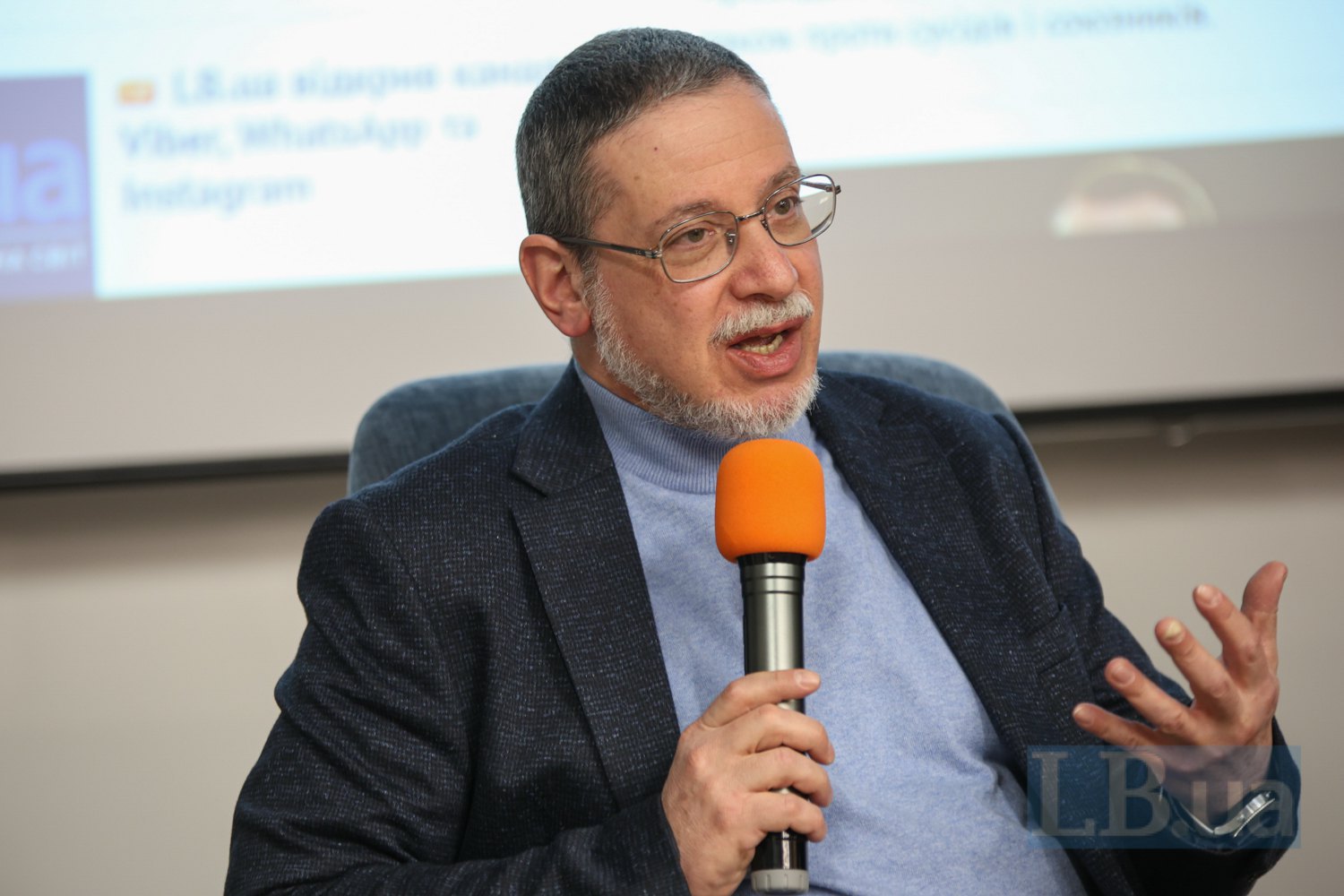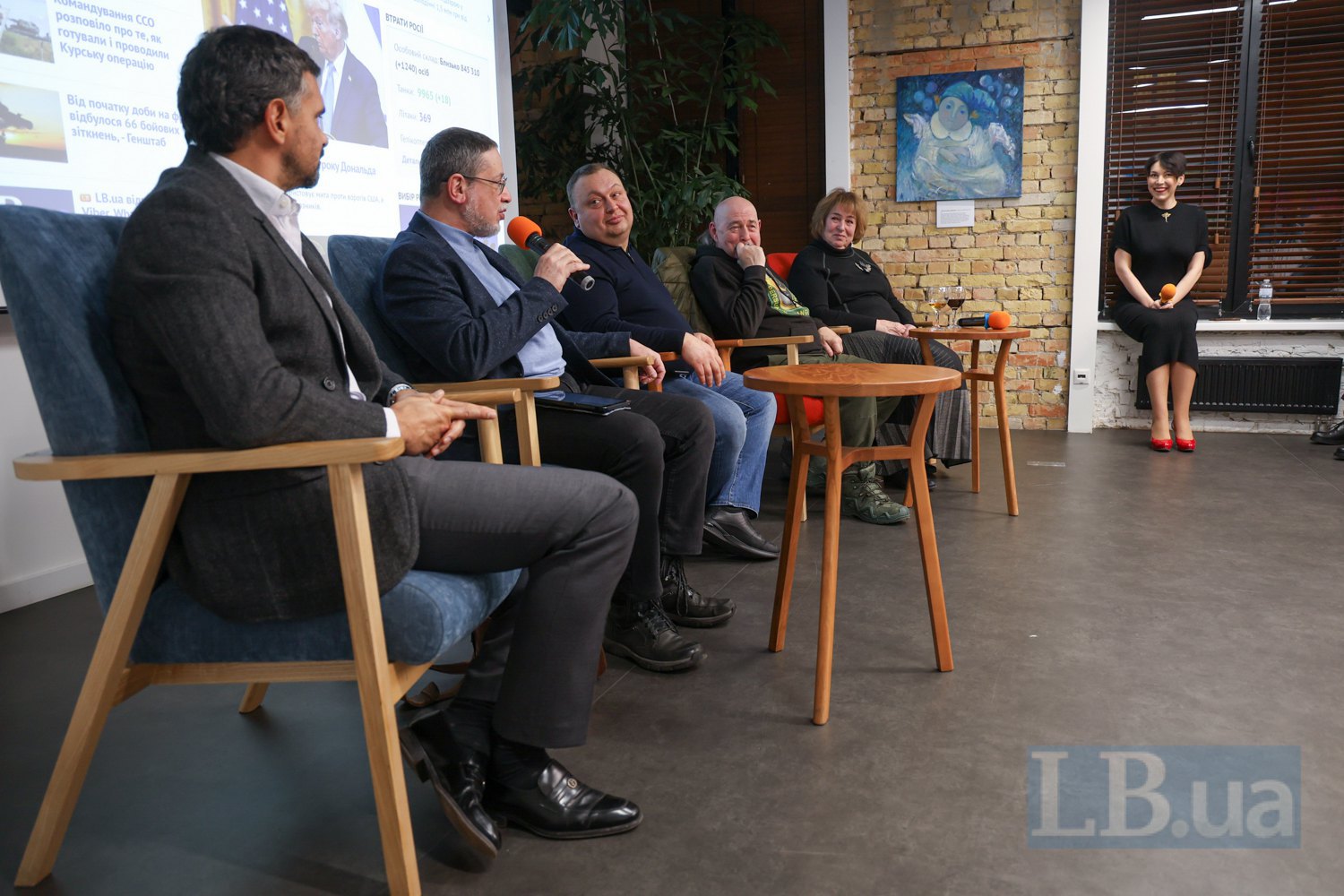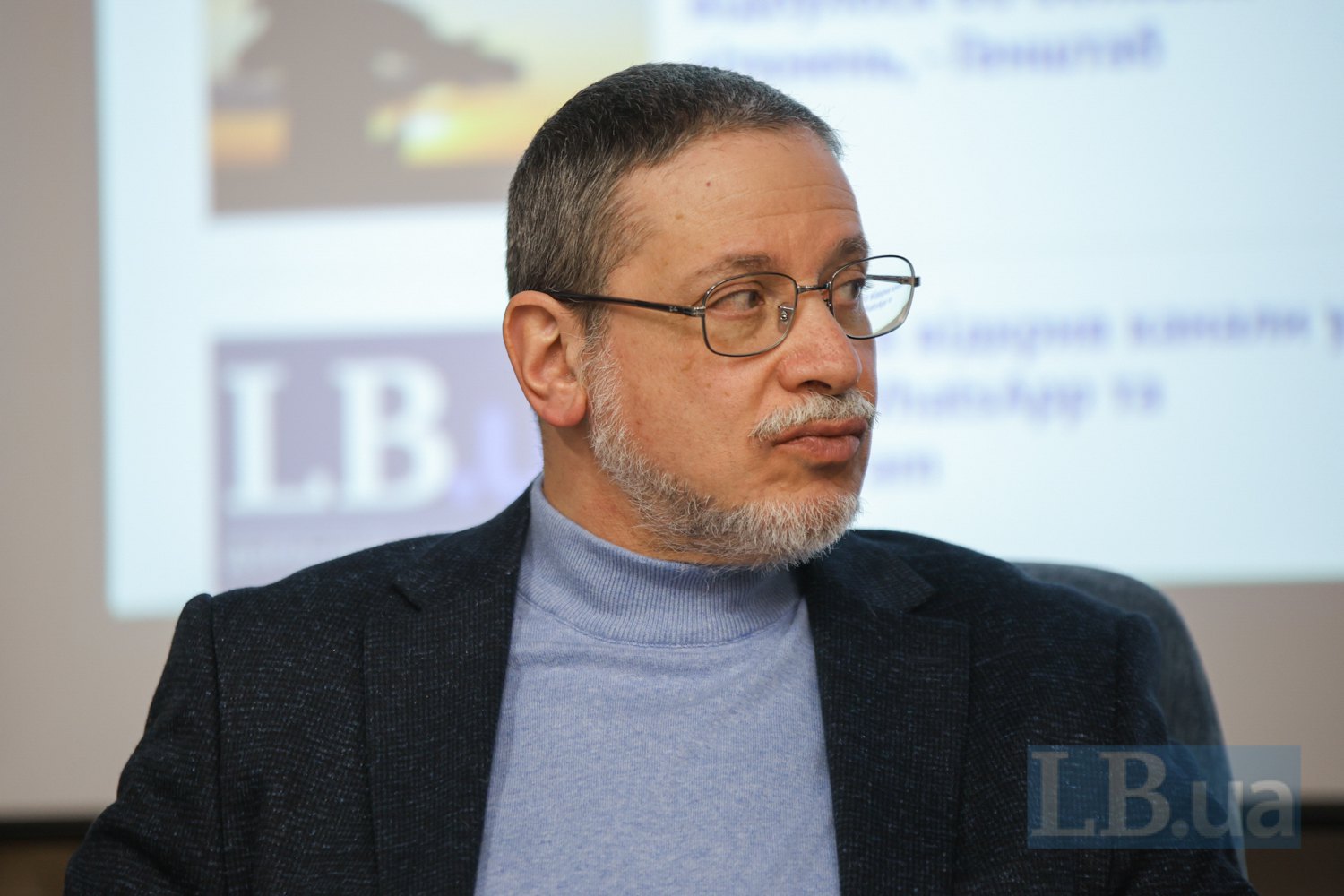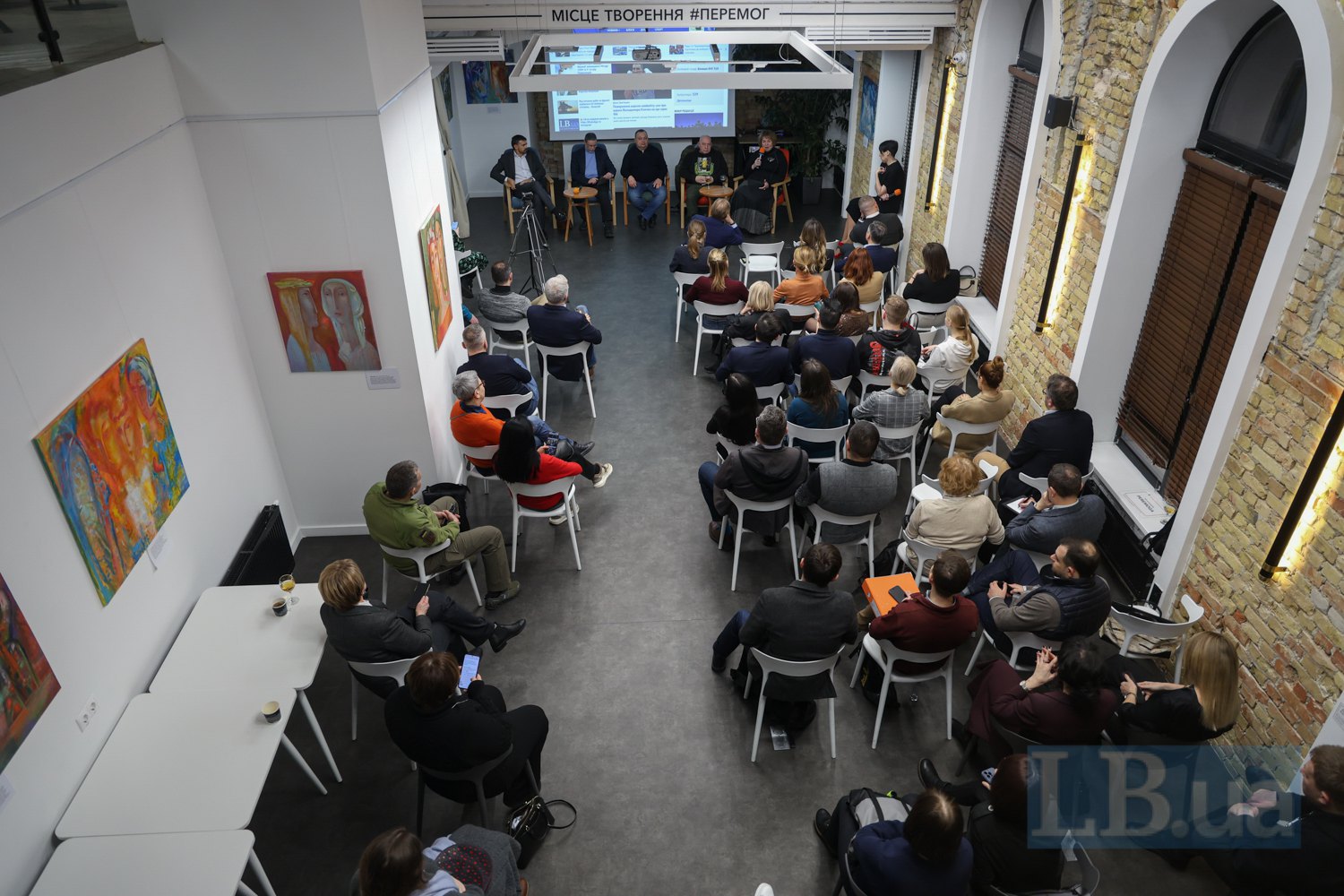
"The year 22 was a year of shock. A painful shock that we experienced.
The 23rd was a year of high expectations and, accordingly, terrible disappointments.
The 24th was a year of survival.
The 25th year - sorry, this is again a year of survival. The year of resilience, when we will actually be tested to see if we will survive. And the biggest threat is not that the frontline will collapse. Experts talk about this a lot (I am not an expert). The biggest threat is that the rear will collapse. Because here they will work to make us all quarrel. However, I don't think we will quarrel," said the Kyiv Mohyla Business School lecturer.
In this context, he called for a calm perception of the US government's promises to end the war in Ukraine and not to engage in self-deception.
‘"I am addressing you and asking you to read the news from Washington, D.C., calmly. The vast majority of what you read has no meaning, no impact on our future. We are now searching for a format that would allow us to get out of this situation, which would confirm the position of the newly elected US President as a global peacemaker. No one knows how to do this. There is a massive search for a way to do this," the expert adds.
According to him, Putin is not ready to sit down at the negotiating table. The United States has no leverage to force him to do so. China could help, but it has a 300-page list of what it would like in return. This will not happen quickly either.
"I see a lot of different scenarios in which this could be resolved little by little, but let's be honest, I don't see any scenario in which this is going to be resolved in the next few months, in the next year," Pekar added.

There will be no elections until the war is over. Unlike populism
According to Valeriy Pekar, for a number of security, legal and moral reasons, elections in Ukraine cannot take place during martial law. The public will not consider elections that do not involve members of the Defence Forces - those who deserve it most - to be fair and transparent.
"We have three facts. The first is sociology. Sociologists will confirm that more than 70% of the population say that elections are impossible during the war.
The second is civil society. Hundreds of civil society organisations are ready to sign a statement again and again at any time with a list of reasons and arguments why this is impossible.
And thirdly, Ukrainian political forces (the government and the opposition) agreed within the Jean Monnet Roundtable [on the possibility of holding elections] six months after the end of martial law. This is more than the law requires, plus 6 months for everyone to prepare," Pekar said.
International organisations that monitor democracy and the integrity of elections in Ukraine also support this position, he notes.
And the expert believes that the statement that most democratic countries hold elections (voiced by Trump's special representative for Ukraine and Russia, Keith Kellogg - Ed.) is not true.
"Ukrainian election experts, together with international partners, have clearly identified that there is no experience in the world of holding elections during a war that would be relevant to Ukraine here and now.
There are small wars; there are countries that are involved in wars on distant continents, not on their own territory; there are countries that have held local elections in certain districts, but no one has had the challenges that Ukraine has today to hold elections at such a time. That is why there will be no elections while we are in wartime," Pekar said.
He stressed once again that the demands of Western partners, such as holding elections or the need to mobilise 18-year-olds, are not supported by anything and only show that ‘on the one hand, they have a promise to offer some kind of peace agreement format very quickly, but on the other hand, they have no way, or even any understanding of how to do it.
"That's why sometimes a random number generator is simply switched on and it can generate anything, but that doesn't mean we have to react to it. ...Everyone who is preparing for the elections now is preparing in vain," says the Kyiv Mohyla Business School lecturer.
However, he also notes that it is already clear that populism will become extremely popular after the war - too many people have suffered in it, so "you want to give everyone money and go to barbecues".
"I know exactly which agenda will win the next election. The person who proposes three things - a quick end to the war, the end of the era of poverty and the imprisonment of all those responsible - will win the next presidential election," Valeriy Pekar is confident.
Demographic policy in the country will be determined by business
It is futile to expect the government to implement state policy on anything simply because it cannot keep up with what is happening, the expert believes.
"This applies not only to the Ukrainian state. Today, almost any state fails to keep up with the development of events. The German state is not keeping up with the development of German events. The American state can barely keep up with the development of American events. In some strange way, the Norwegian state keeps up with Norwegian events a little bit. And this is the exception rather than the rule," says Pekar.
And that is why the key actor in implementing Ukraine's demographic policy will not be the state, but corporate HR directors, he is sure.
"These will be the people who will determine what the Ukrainian policy will be. These will be the people who will actually make this policy with their pens. And they will not wait for anyone to listen, because business needs to develop here and now. And if I need a million Filipinos today, then tomorrow there will be a million Filipinos here. And you will accept them as they are and be happy that they are Catholics, not Shiites"’ the expert notes.

At the same time, Valeriy Pekar emphasises that for this immigration to be truly productive, these people must acquire Ukrainian identity.
"We need Ukrainians not only as labourers. We need Ukrainians because, excuse me, if the Ukrainian nation continues to shrink at this rate, very soon the Ukrainian territory will shrink at this rate. When there are 10 million pensioners and 2 million workers, it doesn't work, it's not possible to protect Ukraine. We need not just immigrants, we need new Ukrainians. You can be born a Ukrainian, but you can also become one," the expert said.
Acquiring Ukrainian identity, according to him, means going through a certain stage of assimilation, possibly leaving your previous identity behind and acquiring a Ukrainian one.
"You can see quite a lot of Afro-Ukrainians on our streets in big cities, obviously, not in villages. You can see Crimean Tatars as a model of dual identity. They are political Ukrainians, but at the same time they do not forget their original identity. So, we will have Uzbek-Ukrainians, Filipino-Ukrainians, Nigerian-Ukrainians, Vietnamese-Ukrainians," adds Pekar.
The expert names the key factors that will ensure the success of this process:
"The first is the power of the Ukrainian language and culture. Without this, the acquisition of Ukrainian identity is impossible.
The second is an active migration policy. Do not think about the state, it will not do it. Business will do it. But this means that this Uzbek-Ukrainian has to pass all the exams in the Ukrainian language, culture and history back in Tashkent, and come here with certificates.
The third thing is the openness and inclusiveness of Ukrainian society.
The fourth and key factor is economic freedom. No matter what you do, we will always have the problem of economic freedom," Pekar is sure.

He reminded us that at the beginning of the great invasion, Ukraine was ranked 130th in the economic freedom ranking. With such a figure, it is difficult to become a ‘talent magnet’. To get on the radar of at least some investors, you need at least 70th place, the expert believes. So it's all about reforms.
"Let's face it: the state is not keeping up, the state needs to involve business in developing and implementing these strategies. Corporate HR are the kind of people who will not wait. If it is needed tomorrow, it will be done tomorrow. And the state has a choice - to work together or to sit and wait until it de facto happens and then say, well, what could we have done? That is why economic freedom is the number one priority after the war. No matter what you do, you will run into this problem," Valeriy Pekar summed up.








